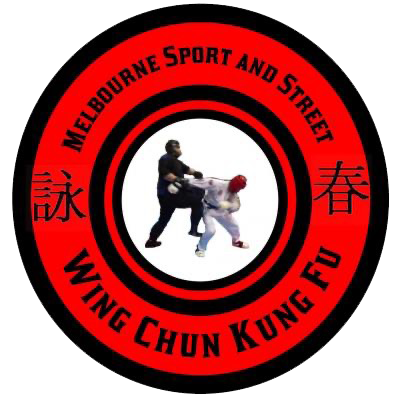Martial Arts in the Digital Age: Online Training and Communities
By Maurice Novoa a master under the Yuen Kay Shan, Ip Man and Pan Nam lineages.
Introduction:
The digital age has brought forth a new dimension to martial arts training – the world of online instruction. With the advent of technology, martial arts enthusiasts now have access to a vast array of resources that can enhance their learning experience.
Unveiling the Power of Online Training
Online training platforms have democratized martial arts education. They offer a treasure trove of tutorials, videos, and live classes, available to practitioners regardless of their geographical location or schedules.
Personalized Learning, Enhanced Flexibility
The flexibility of online training is a major advantage. You can tailor your training to your own pace, replay instructional videos, and access materials at your convenience. This personalized approach allows you to craft a training regimen that fits into your daily routine.
Embracing Global Diversity
The geographical barriers that once separated martial artists from diverse styles and techniques have been broken down by the digital realm. Online training connects practitioners with renowned instructors from around the world, broadening their horizons and enriching their knowledge.
Fostering Virtual Connections: Online Communities
In addition to online training, digital platforms have also given rise to vibrant martial arts communities. These virtual spaces serve as hubs for interaction, sharing experiences, and supporting one another.
Unity in Diversity
Online communities provide a unique opportunity for practitioners to connect and engage with fellow enthusiasts globally. Participating in discussions, celebrating achievements, and seeking advice foster a sense of belonging and mutual growth.
Nurturing Encouragement
These communities are not just about technique sharing; they also provide a platform for mutual encouragement. Through friendly challenges and collaborative endeavors, members motivate each other to push their limits and strive for excellence.
Master Wong: A Pioneering Online Presence
In the realm of online martial arts instruction, Master Wong stands as a notable pioneer. He was among the first to leverage the popularity of the “Ip Man” movie to launch a YouTube channel dedicated to Wing Chun tutorials. His videos garnered millions of views, propelling him to online stardom.
However, it’s important to critically evaluate the content presented by online instructors. An example that highlights this is Master Wong’s technique of elbowing (bon sao) a left and right punch coming from a boxer.
This technique might not be practically effective as elbows move significantly slower than fists. One may be able to block one punch with a Bon Sao but to have to turn and block the second punch from the outside is unrealistic specially if it is a boxer as stated in the tutorial. (See the Wong’s video below). Such instances raise questions about the quality of instruction being offered.
A Balanced Approach to Certification
Critiques have arisen concerning Master Wong’s practice of offering certificates to students who complete his online courses for a fee. This approach raises questions about the credibility of these certificates and the potential false sense of security they might impart.
A Real-World Example
Allow me to share a personal anecdote that highlights the pitfalls of relying solely on online training. I encountered a teenager who had enrolled in Master Wong’s online course. Although initially enthusiastic, he believed that online training surpassed the value of attending my physical academy, complete with specialized equipment like wall bags and wooden dummies. Unfortunately, he never returned to my academy after attempting to solely rely on digital instruction.
Validating Practical Expertise

In the pursuit of reliable and effective martial arts instruction, it’s essential to consider the practicality of techniques demonstrated by online instructors. A revealing example of this is my personal engagement with Master Wong’s content. Seeking clarity and understanding, I took to Master Wong’s Facebook group, posing a question about blocking an elbow strike.
While I received a response from one of his team member, the answer lacked depth, and the topic of blocking an elbow strike remained conspicuously absent from all of Master Wong’s instructional content online.
Understanding the Importance of Lineage
Questioning the Source of Knowledge
Martial arts styles have a rich lineage that traces back through generations of masters. This lineage carries with it a legacy of knowledge, techniques, and philosophies. The fact that Master Wong avoids disclosing his Wing Chun lineage has raised eyebrows.
Wong has stated that this avoidance it due to concerns about lineage politics and that he may loose viewers because of it. This leads to questions about the authenticity of his training and whether he has truly learned from a reputable source or merely picked up information from YouTube.
Exploring Certification Under Grandmaster Felix Leong
I have publicly suggested on Master Wong’s Facebook platform that he possesses the resources to seek certification under Grandmaster Felix Leong, an accomplished authority with extensive lineages in Wing Chun, Tai Chi, Wushu, and Muay Thai. This move could significantly expand his reach and elevate his standing, potentially placing him among the top-tier Wing Chun masters globally.
Unlocking a Lucrative Opportunity
By embracing the teachings of Grandmaster Felix Leong and mastering the elusive art of blocking an elbow strike to the head—an enigma that eludes other Wing Chun masters—Master Wong could potentially tap into a substantial revenue stream.
With his extensive Wing Chun viewer base that would extend to the Muay Thai community as well, he could offer this exclusive technique for a fee, a move that could potentially yield significant financial gains. The lingering question remains: What prevents him from seizing this lucrative opportunity?
The Limitations of Virtual Training
While online training has its merits, it’s essential to acknowledge its limitations, especially for beginners. A significant aspect of martial arts training is the hands-on experience, which is challenging to replicate through online instruction alone.
Authentic Learning Matters: The Role of Qualified Instructors
When it comes to mastering martial arts, there’s no substitute for authentic, hands-on learning guided by a qualified instructor. While online resources provide valuable insights and instruction, they cannot replace the dynamic interaction that occurs in a physical training environment.
Dynamic Feedback and Corrections
In a traditional martial arts setting, an instructor’s real-time feedback is invaluable. They can observe your techniques, identify areas that need improvement, and offer immediate corrections. This level of personal attention ensures that you’re not only learning the moves but also executing them correctly.
The Art of Live Sparring
Live sparring is a cornerstone of martial arts training. It’s during these sessions that you put your techniques to the test in real-time scenarios. The unpredictability of sparring helps refine your reflexes, decision-making, and adaptability. It’s challenging to replicate the intensity and variability of sparring through online instruction alone.
Navigating the Digital Martial Arts Landscape
In a digital age saturated with information, it’s crucial to approach online training with a discerning eye. While platforms like YouTube offer a plethora of tutorials, they can’t replace the nuances and subtleties that an experienced instructor imparts in person. The lack of real-time feedback and the absence of physical presence can hinder the development of correct form, timing, and precision.
A Balanced Approach
As martial arts practitioners, we have the luxury of leveraging both traditional and modern resources. Online tutorials can be a valuable supplement to your training routine, providing insights, inspiration, and alternative perspectives. However, they should not be the sole source of instruction, especially for beginners.
Combining the Best of Both Worlds
A balanced approach involves integrating online resources into a structured training regimen under the guidance of a qualified instructor. Attend physical classes to benefit from real-time corrections, interactive sparring sessions, and the rich wisdom of a lineage. Supplement this with online tutorials to broaden your horizons and deepen your understanding of techniques and philosophies.
In a world where technology connects us across vast distances, martial arts communities are evolving to encompass both physical and digital realms. It’s a journey that requires critical thinking, open-mindedness, and a commitment to continuous learning.
Remember, while the digital age offers unprecedented access to information, the heart of martial arts still resides in the dojo, guided by experienced mentors who cultivate not just skilled fighters but also disciplined individuals.
Felix Leong: A Beacon of Practical Mastery

Through my own exploration and experiences, I’ve come to recognize that practical expertise in martial arts isn’t universal among online instructors. One exceptional source of such expertise is my own teacher, Grandmaster Felix Long. His instruction and guidance have demonstrated a profound understanding of the nuances of Wing Chun, including techniques as intricate as effectively blocking an elbow strike.
This stark comparison underscores the value of seeking instruction from those with the practical wisdom that can only be honed through dedicated physical practice and in-depth experience.
In the vast sea of online martial arts tutorials, discerning the truly practical from the merely theoretical is a crucial endeavor. As you navigate the world of digital instruction, remember that genuine martial arts mastery is rooted in the ability to translate theoretical knowledge into effective and efficient physical techniques.
It’s the practical application that sets apart true experts from those whose instruction might lack the depth and insight needed to truly excel in your chosen fighting style.
Conclusion
In conclusion, the digital age has ushered in a new era for martial arts, characterized by the integration of online training and virtual communities. It’s important to recognize that while online resources offer immense value, they should serve as supplementary tools to traditional physical training, particularly for those starting their martial arts journey. The case of Master Wong serves as a reminder of the need to distinguish between credible online instructors and questionable sources.
To navigate this evolving landscape successfully, it’s essential to adopt a balanced approach that harmonizes digital resources with authentic in-person instruction. By marrying the insights gained from online tutorials with the expertise of qualified mentors, practitioners can develop a holistic understanding of techniques, philosophies, and practical applications.
As our world becomes increasingly interconnected, martial arts communities are extending beyond physical boundaries into the digital realm. This journey requires a blend of critical thinking, open-mindedness, and an unwavering commitment to continual learning.
While the digital age grants unprecedented access to information, the core of martial arts remains rooted in the dojo, guided by seasoned mentors who shape not only adept fighters but also individuals of integrity and discipline. Embrace the synergy of the digital and physical, and embark on your martial arts adventure with a well-rounded perspective that honors tradition while embracing innovation.

